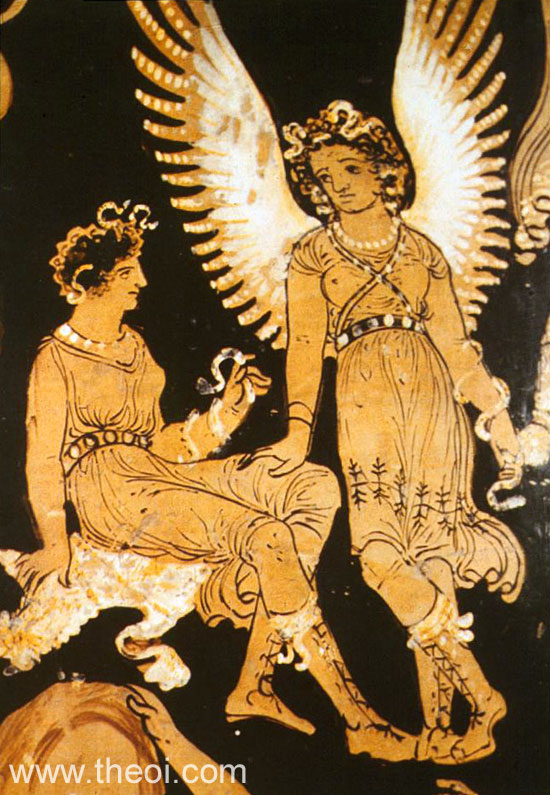5 Anthesterion, 2784

Tyche has been described by scholars as "the most important diety of the Hellenistic era because of her universal sovereignity over mortals and immortals alike"(22). As Luther Martin points out in his book Hellenistic Religions: an introduction, "a personified Fortune (Tyche) was widely worshipped by the third century BCE and possessed temples in nearly all the great Greek cities"(Martin, 22). The development of belief in Tyche, who embodied both positive and negative aspects, shows the growth of a system of ethics within Greek faith and practise.
The universal recognition of Fortune's effects is often viewed in light of what Pliny described as "the final stage in the secularization of Hellenisitc religion, in which the personification of the unpredictable and the unexplained 'take the place of God' "(22). Random and unexplicable events of life were not the result of punishment from Zeus or the other Olympians, but rather an aspect or person of the Numinous itself.
 The Goddess Tyche
The Goddess TycheTyche, which is the Greek name for this goddess, is sometimes used (especially in late Greek and Roman times) for the soley negative aspects of the Goddess - such as chance, flukes, randomness, unsteadiness, and sheer luck. During later periods, her positive aspects are given the name Eutykhia, who embodies only good fortune, luck, success, and prosperity. While they are seen as two seperate manifestations, they are always seen as a single, united Goddess.
The feelings and emotions that were associated with Tyche or Fortuna in the ancient religion are represented by the Part of Fortune in horoscopes. Looking at the placement of this lot was well known and widespread by the 1st century BCE, and was likely in widespread use for decades, if not centuries prior to the extant records we have available archaeologically. It is unknown if this lot was Hellenic, Babylonian, or Egyptian in origin, as it appears in the Astrologies and religions of all three civilizations in ancient times.
Calculating the Part of Fortune is relatively easy, especially with the aid of modern Astrological software and calculation programmes. The way to calculate this lot is based on whether the birth occured during the day or during the night:
Day chart: Ascendant + Moon - Sun
Night chart: Ascendant - Moon + Sun
Notice that for a chart where the sun is above the horizion (i.e. in the seventh through the seventh through the twelfth houses) the Moon has a positive effect while the Sun has a negative effect; for a nocturnal chart, the opposite is true.
While one's destiny is written by the Gods, the way that one goes about achieving this destiny is what determines the individual's fate. Some people today make the mistaken assumption that if one has a destiny given to them by the Gods, that they have no free will. This is not the case, as one can choose to either accept or deny their destiny and divine calling of their own free will. If one accepts their destiny and practices orthopraxy - or right living in harmony with the Gods and their wishes - then they are virtuous and have good luck. If one tries to deny their destiny or falls out of favour with the Gods through hubris or wrong decisions, then they will experience bad luck or punishment for their deeds. As Martin states, in the Ancient Greek world:
Whereas one could not escape the positive or negative effects of the moira, one might be saved from domination by a negative Tyche/Fortuna through sympathetic identity with her positive side (25).








No comments:
Post a Comment